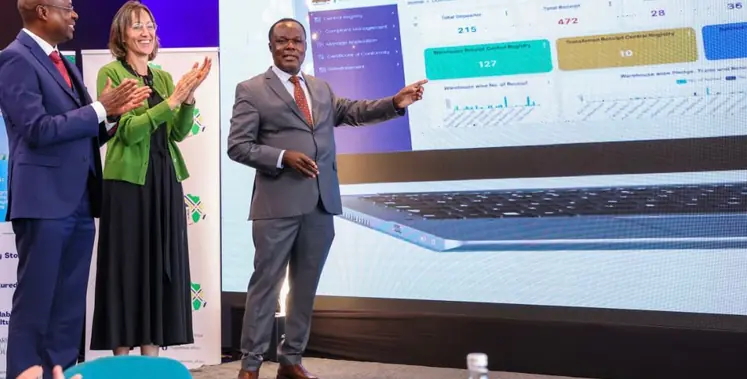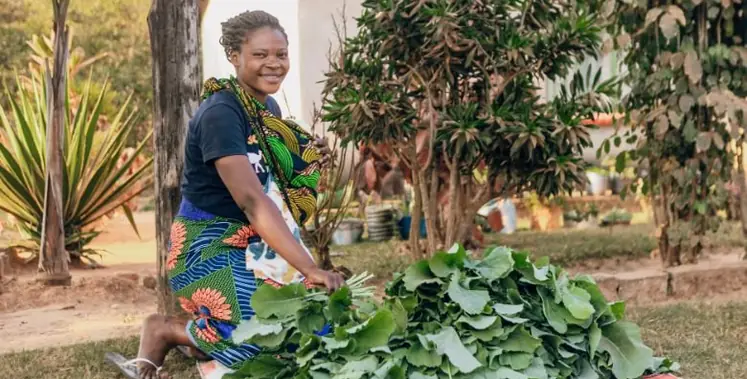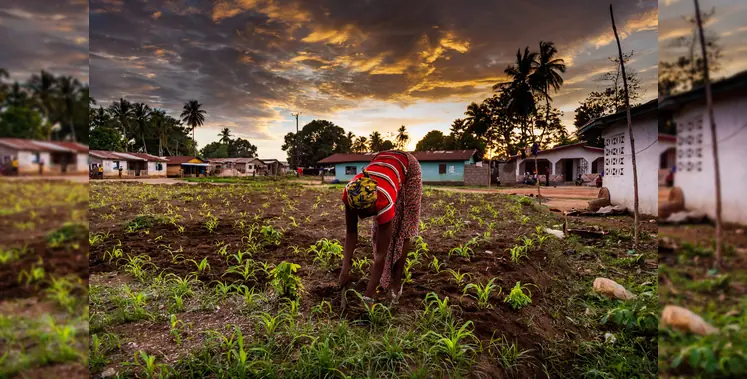
Kenya Goes Digital: New Electronic Warehouse Receipt System Set to Reshape Agricultural Trade. (Image credit: State Department for Trade)
Kenya has taken a significant step forward in modernising its agricultural sector with the launch of the Electronic Warehouse Receipt System Central Registry, known as the eWRS-CR.
Developed by the Warehouse Receipt System Council (WRSC) in partnership with TradeMark Africa and backed by funding from the British High Commission in Kenya, the platform is designed to tackle some of the most persistent challenges facing the country's farming community.
At its core, the system is a secure, government-owned digital platform that automates and centralises the management of warehouse receipts. For farmers who have long struggled with post-harvest losses, limited access to credit and unpredictable market conditions, this represents a genuine shift in how agricultural trade can work. The platform allows farmers and commodity owners to store produce in certified warehouses and receive electronic receipts as proof of ownership. Those receipts can then be used as collateral to access loans, giving farmers financial breathing room without forcing them into distress sales.
The numbers behind the problem are stark. Smallholder farmers account for more than 75 per cent of Kenya's agricultural output, yet less than five per cent of bank lending reaches the sector. Post-harvest losses for some commodities run as high as 30 to 40 per cent. The eWRS-CR directly targets both issues by creating a more structured, transparent and trustworthy trading environment.
Principal Secretary for Industry, Dr Juma Mukhwana, officiated the launch and spoke to the platform's broader significance. "The e-WRS Central Registry is not merely a technology platform; it is a confidence-building intervention designed to catalyse participation across the agricultural value chain. By enhancing transparency, strengthening trust, and enabling access to finance, this system empowers farmers, attracts private sector investment, and contributes to Kenya's broader economic transformation," he said.
WRSC Chairman Patrick Mbogo , added, "The launch of the Electronic Warehouse Receipt System Central Registry marks a defining moment in Kenya's journey toward a modern, transparent and efficient agricultural marketing system. This platform strengthens trust among market participants, enhances commodity security, and unlocks access to financing for farmers and agribusinesses. It lays a firm foundation for structured agricultural trade and positions Kenya as a regional leader in agricultural market innovation."
Country Director of TradeMark Africa, Lilian Mwai, underlined the regional dimension of the initiative. "By improving traceability and enabling access to finance, this platform empowers farmers and agribusinesses to compete more effectively in domestic and regional trade. The No Stop Border initiative becomes practical by fixing systems at source. Goods moving across Africa should not face unnecessary delays caused by fragmented systems. Systems like the Electronic Warehouse Receipt platform ensure that commodities are traceable, trusted and trade-ready from the moment they enter the value chain," she said.
Deputy High Commissioner Diana Dalton of the British High Commission echoed the sentiment. "Kenya and the UK are injecting innovation into agriculture. Not only does this system put more money into farmers' pockets, but it also allows produce like maize to be used as collateral for short-term loans, enabling farmers to meet immediate needs without selling at lower prices. The renewed Strategic Partnership between Kenya and the UK is driving modernisation for businesses of all sizes, adding crucial value to produce before export," she said.
The system is already live and fully operational. To date, 114 warehouse receipts have been registered, covering nearly 600,000 kilograms of deposited commodities. Kenya's transition from a pilot phase to nationwide rollout signals a serious commitment to building an agricultural economy that works better for everyone in the value chain.








